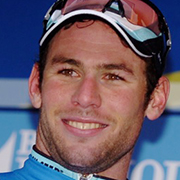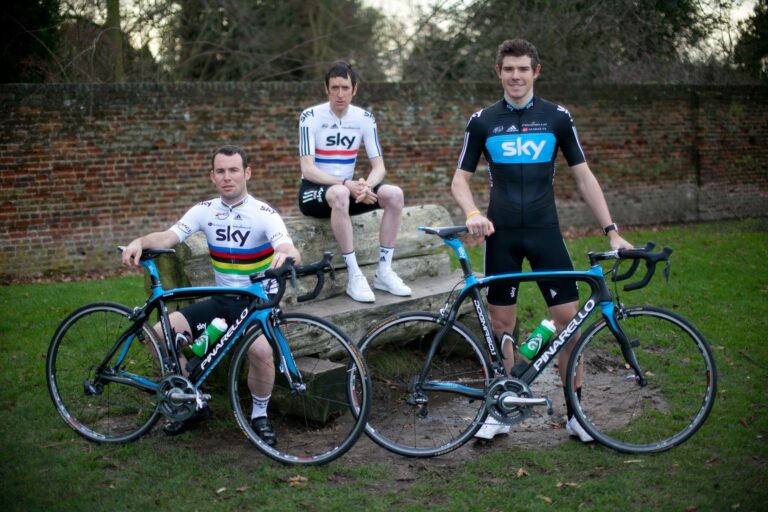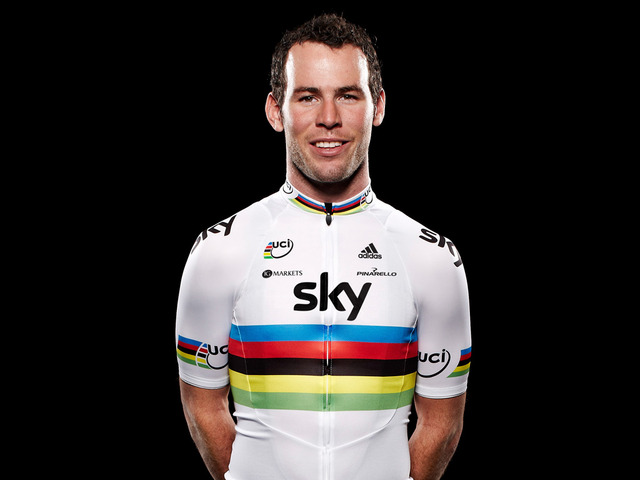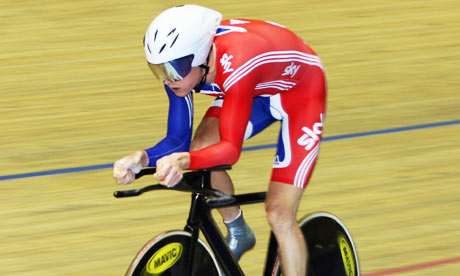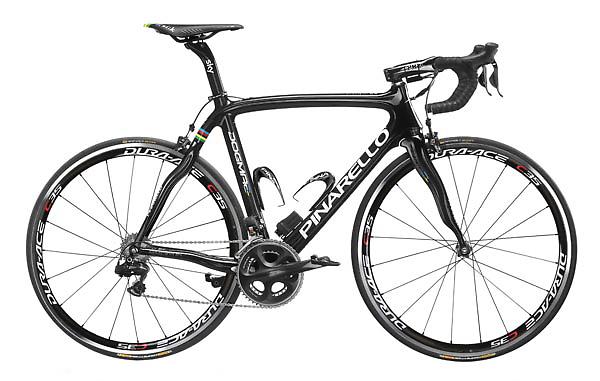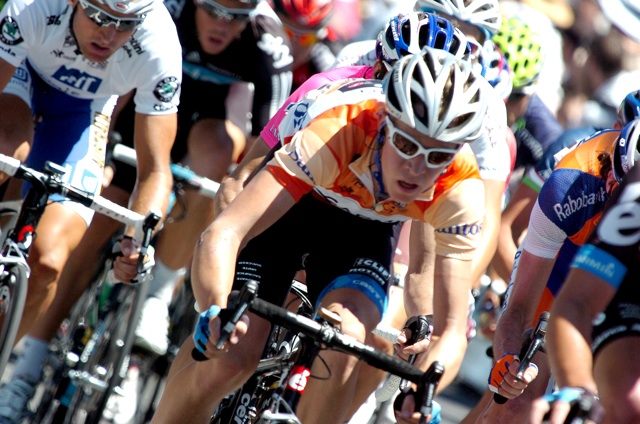While the Tour de France and Olympic Games may dominate the cycling news agenda in 2012, world road race champion Mark Cavendish has identified a repeat of his 2009 Milan-San Remo victory as his primary target for the first half of the year.
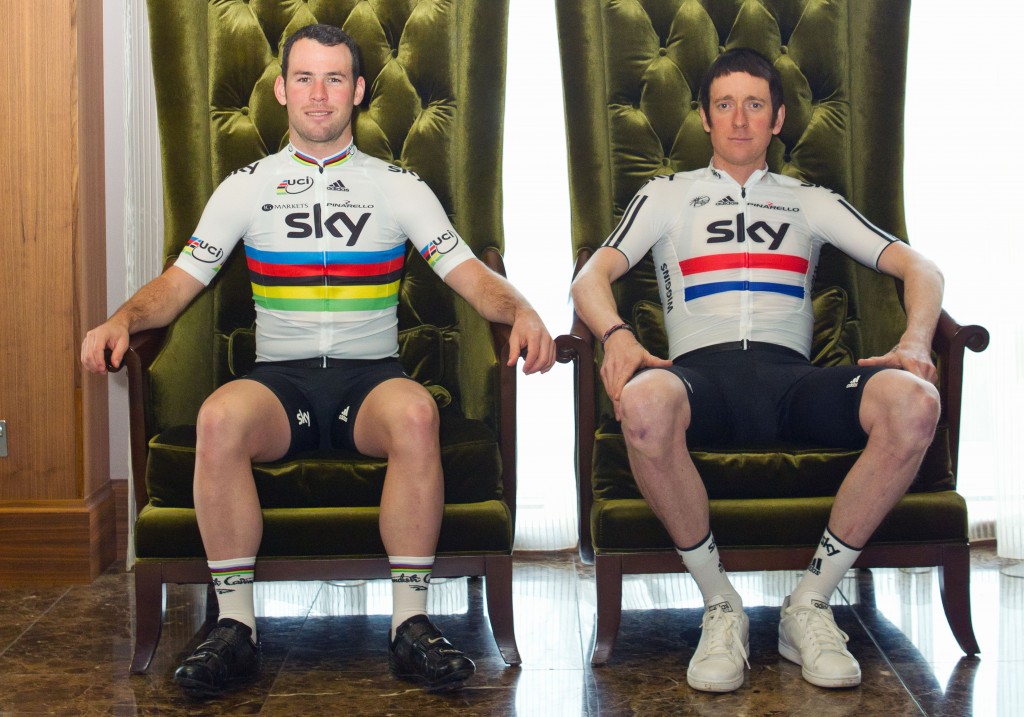
Cavendish won the 100th edition of the race by a tyre’s width ahead of Heinrich Haussler in a season that saw the Manx Missile register 26 victories, including four stage wins at the Giro d’Italia, and six – his biggest haul to date – at the Tour de France.
Speaking to RoadCyclingUK at Team Sky’s 2012 launch, Cavendish said four – Michael Barry, Edvald Boasson Hagen, Bernhard Eisel, Thomas Lovkvist – of the eight-strong HTC-Highroad team that helped propel him to victory that day are now with the British squad.
And the 26-year-old Cavendish revealed a second triumph will satisfy an itch that has existed since his original victory, before shifting his attention to the Tour and Olympic road race in July.
“I’d like to win Milan-San Remo again,” said Cavendish. “I said when I won it in 2009 that I’d like to win it in the world champion’s jersey – and now I’ve got the rainbow bands.”
Since his World Championship victory in September, Cavendish has been a familiar fixture on British television and radio, not least in the run-up to BBC Sports Personality of the Year, where he secured 49% of the public vote to bag the gong.
But Cavendish has also found plenty of time for training; on home soil on the Isle on Man, in his adopted county of Essex and at Team Sky’s pre-season camp in Majorca.
Cavendish has traditionally needed time to find his feet in a new season but the move to Sky has given him fresh impetus and the 2011 Tour de France green jersey winner insists he will begin his 2012 campaign at the Tour of Qatar firing on all cylinders.
He added: “In the last couple of years it’s just been about the Tour de France and perhaps I felt a bit undervalued by my last team and I just wanted to succeed at the Tour.
“So it wasn’t like I was lazy during the winter but I didn’t have to go well until July. It’s not like I wasn’t training – I was always on my bike – but I didn’t have to step it up until later in the season.
“I don’t want to be chasing July; I want to know exactly where I am in May, so I can perform to my best at the Tour de France and the Olympics.”
Team Sky now have cycling’s hottest property on their books and Bradley Wiggins believes the addition of an in-form Cavendish has given the entire squad a lift.
Wiggins said: “He’s joined this team now, he’s world champion so his motivation is higher and he doesn’t want to go into the first races unfit. All the success that’s happening around us is pushing us all on.
“You need to keep working because you don’t want to be left behind by anyone in the team and it’s really nice to be part of that.
“Had I had success at the Tour I wouldn’t have raced much for the rest of the season, and before you know it six months have gone, your fitness has gone and you’ve got a long process.
“But having done the Vuelta and worlds it’s kept me in better shape through the winter and obviously it’s unfinished business still [at the Tour de France].”
Wiggins is another British rider who ended 2011 in the form of his life, finishing third overall at the Vuelta a Espana – his comeback after crashing out of the Tour de France with a broken collarbone – and claiming time trial silver at the World Championships, before playing a key role in Cavendish’s victory.
With team-mate Chris Froome finishing second at the Vuelta, it was the first time two British riders had finished on the podium at a Grand Tour.
Wiggins conceded the race lead on stage 15, when eventual champion Juan Jose Cobo claimed victory on the feared climb of the Angliru.
But despite admitting to going into the Queen Stage unprepared, the 31-year-old Wiggins believes there is a lot to be learnt from the team’s approach to the race.
“I’m never thinking that far ahead,” he said. “I don’t see any benefit [in looking at the Tour de France stages now]… What you don’t know can’t hurt you.”
He continued: “By the time it gets to Paris-Nice [in March], then if we’re in the area we might go to see a couple of stages, the TT, and after [the Tour of] Romandy we might look at a mountain stage.
“But in terms of looking at it on paper now, it all looks hard on the profiles and you don’t get any sense of what it’s actually like.
“I think there was something to be learnt from the Vuelta. We went into that blind, then I found myself in the red jersey on the Angliru with no idea what to expect and asking Spanish journalists, ‘What’s this climb like? What gear should I be using?’
“That’s the other end of the spectrum, being unprepared for something. We lost the Vuelta on that climb. So there’s a balance of not knowing and not worrying about it but also knowing the key stuff that’s really going to make a difference.”

